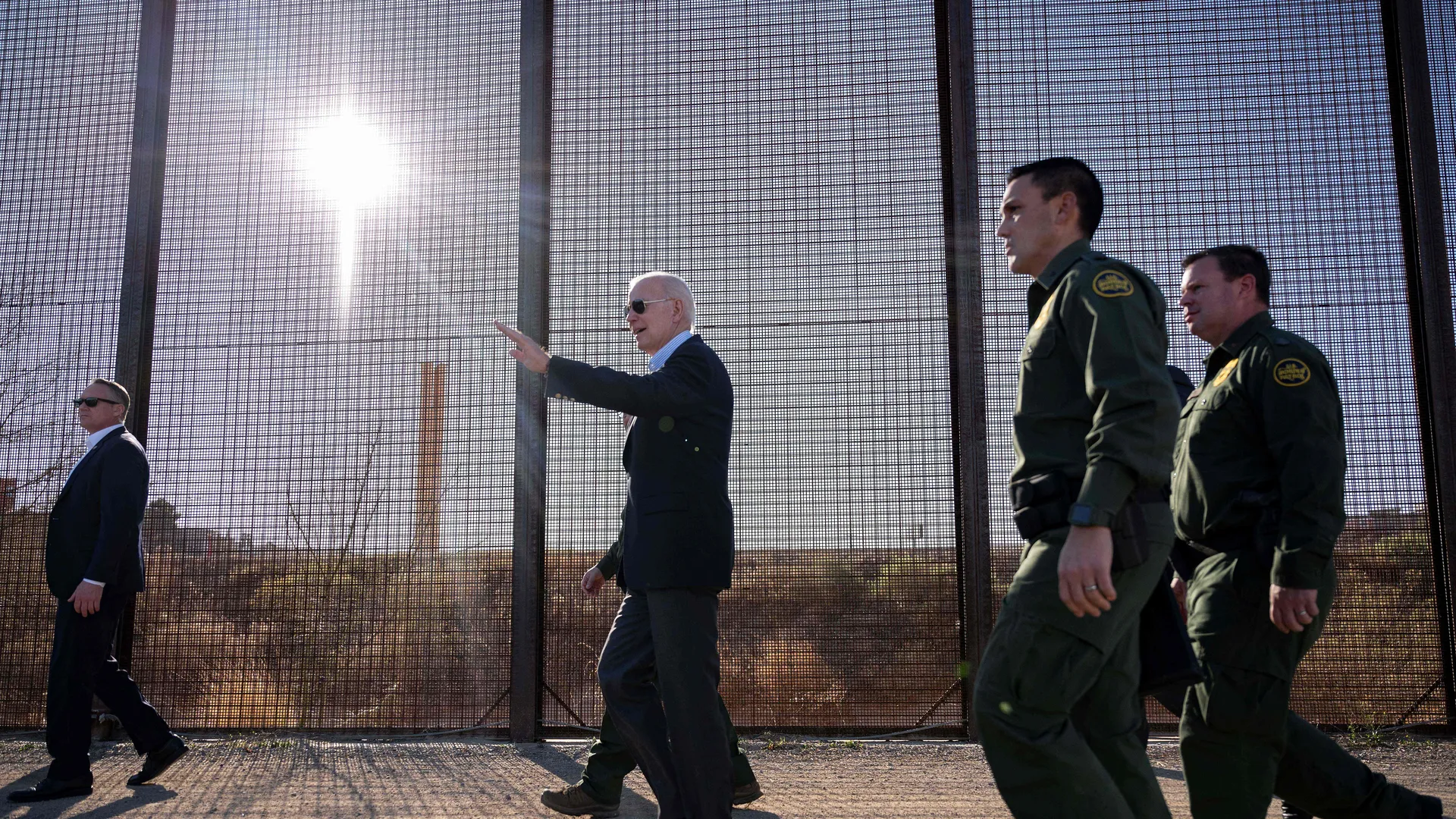On October 5th, 2023, President Joe Biden publicly reneged on a 2020 campaign promise when his administration announced it would be waiving 26 federal environmental laws and regulations to resume the construction of the Trump Era U.S.-Mexican border wall.
During his presidential campaign, Biden vigorously denounced the border wall construction by then-President Donald Trump, calling it “not a serious policy solution.” One of the first actions Biden took after being sworn into office was pledging that there would never be another foot of the border wall built under his presidency. However, facing an unprecedented surge in migrants, the pressure from both Democrats and Republicans to find a solution to the developing crisis likely left Biden feeling cornered.
The administration’s announcement left many people, Democrats, environmentalists, and advocates alike, surprised and enraged. Laiken Jordahl, a southwest conservation advocate for the Center for Biological Diversity, expressed disappointment, calling it a “horrific step backward” that they didn’t expect from this administration.
Initially authorized under the Trump Administration as part of its established immigration policy, the Southern border wall saw the total completion of 450 miles from 2017 to 2021. Biden’s decision would permit an additional 20 miles extension to wall to be constructed between southern Texas and Mexico in the Rio Grande Valley. The project would also likely include lighting, gates, cameras, and access roads, among other systems.
When questioned about it, Biden admitted he did not think the wall was an effective way to deal with the migrant crisis and claimed he was being forced into this decision by Congress due to already appropriated funds from back in 2019. Congress had dedicated roughly a billion dollars for the purpose of border wall construction, and the Biden administration was put under a deadline to use the money before it would be lost.
Biden had tried to convince Congress to revoke the money from this funding and use it for other efforts they felt would be more effective in dealing with the growing migrant problem. Although no congressional leaders commented on the subject, Biden told reporters at the Oval Office, “The money was appropriated for the border wall. I tried to get them to reappropriate, to redirect that money. They didn’t. They wouldn’t.” He continued, “In the meantime, there’s nothing under the law other than they have to use the money for what it was appropriated for. I can’t stop that.”
In a statement sent later that day, Biden’s Secretary of Homeland Security, Alejandro Mayorkas, stressed that the administration had not changed its policy on border barriers. However, in a contradicting filing hours before, Sec. Mayorkas wrote, “[there] is presently an acute and immediate need to construct physical barriers… in order to prevent unlawful entries into the United States.”
The U.S. Border Patrol had nearly 219,000 encounters with migrants crossing into the United States from Mexico in September 2023, according to U.S. Customs and Border Protection. That number quickly rose in the following months, hitting a peak in December 2023, with nearly 250,000 encounters, becoming the highest monthly total on record, easily eclipsing the previous peak of about 224,000 encounters in May 2022.
In the same filing, Sec. Mayorkas stated that the administration had waived a total of 26 federal laws, including the Endangered Species Act, the Clean Air Act, the Clean Water Act, the Bald and Golden Eagle Protection Act, and the Native American Graves Protection and Repatriation Act. Many of these laws are designed to safeguard our environment and protect precious historical sites.
The wall’s construction would have many harmful impacts on the vast areas of land it stretches over. Without regard to the laws implemented to protect the earth, the development of the barrier can destroy the surrounding ecosystems—creating repercussions such as flooding, erosion, and an increase in pollution.
Some Americans sympathized with the president and respected his decision in the situation. The majority of these sympathizers, who are Republicans and supporters of former President Trump, believe that the barrier wall can be the solution to America’s refugee crisis. However, many other Americans disagree with the president’s decision and feel there was more he could have done to prevent its construction.
By waiving the environmental laws, the Biden administration is only speeding up the wall’s construction. Without allowing for the laws to be waived, the construction could have taken numerous more years due to the precautions and assessments that would have been needed. Not to mention that the harmful environmental impact would have been kept to a minimum.
In February of this year, a bipartisan bill was introduced in Congress which had support from both Democrats and Republicans. The bill aimed to help alleviate the situation at the border and empower the president to take more drastic measures. However, the leading Republican Candidate Donald Trump came out strongly against the measure, calling it “a great gift to the Democrats, and a Death Wish for The Republican Party,” forcing most Republicans to switch their position and block the bill.
With Republicans blocking this vital legislation that would toughen border security and permit President Biden to “shut down the border,” Biden’s October decision will likely remain the most significant border measure undertaken until at least the 2024 election.
Edited by Nikita Osadchiy

